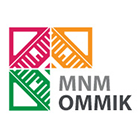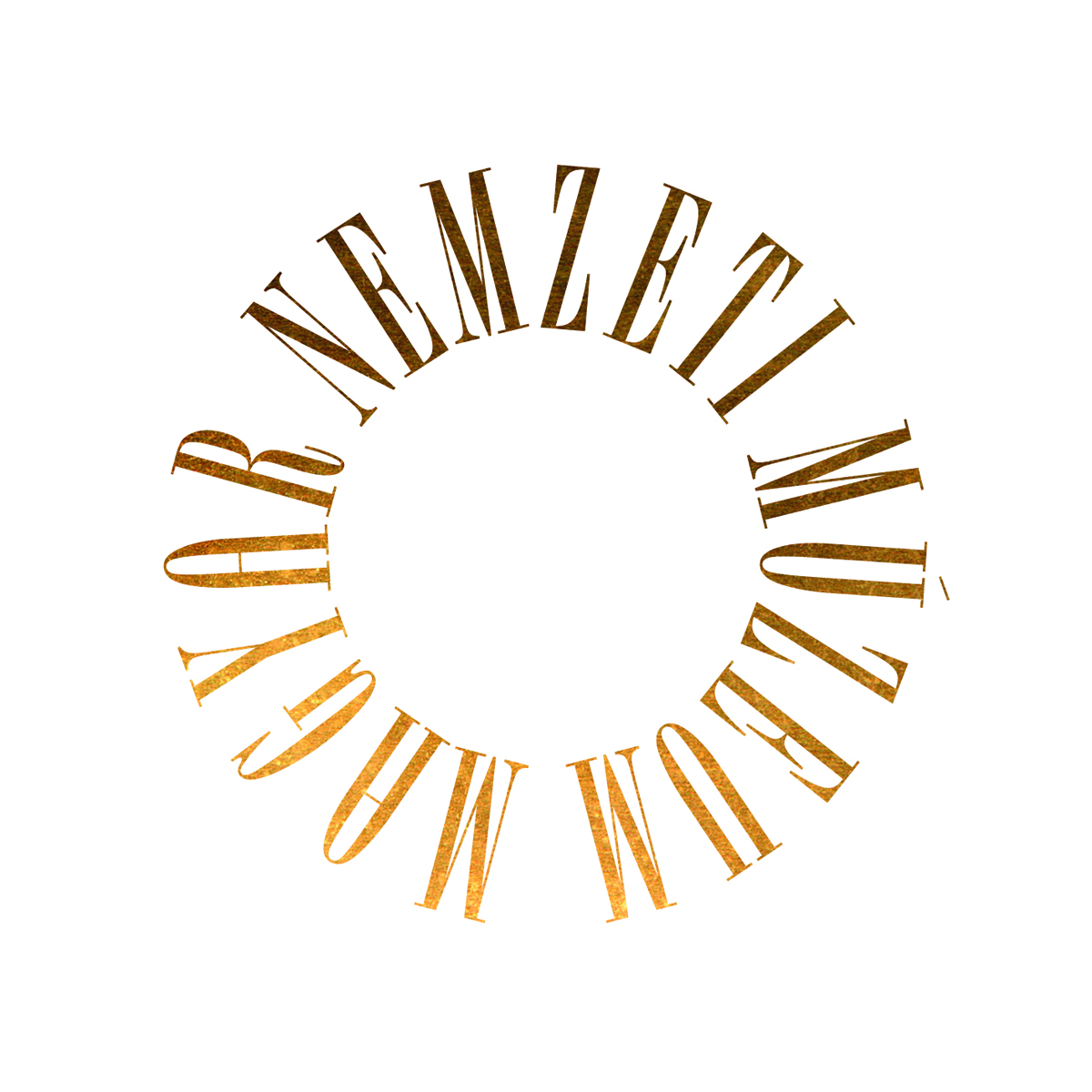MUZEUM@DIGIT 2013 előadók
Amit Sood
Head, Google Art Project
Amit Sood is the founder of the Google Art Project and Director at the Cultural Institute, prior to that he has held senior roles most recently in Google's Android team in mountain view, and has spent time leading Google's Marketing efforts for its GEO products in EMEA. He continues to manage the expansion of the Art Project and other cultural initiatives at Google and is currently based in London working out of the Product & Engineering teams in EMEA. Prior to joining Google, Amit has worked at Ericson, DHL and in the non-profit sector in Europe and India. He received his MBA from INSEAD and bachelor's in Commerce from Sydenham College in Mumbai.
Sz. Fejes Ildikó
főosztályvezető
Magyar Nemzeti Múzeum Országos Muzeológiai Módszertani és Információs Központ
1967-ben született Budapesten, egyetemi tanulmányai végén az ELTE Bölcsészettudományi Karán történelem és régészet szakon fejezte be. Posztgraduális képzés keretében a Miskolci Egyetem Gazdaságtudományi Karán okleveles európai szakértő diplomát szerzett, 2012 óta ISO 9001 vezető auditor. Több, mint húsz éve dolgozik a Magyar Nemzeti Múzeumban: többek között adatbázis építésekben, internetes és multimédia tartalomfejlesztési projektekben vett részt, európai uniós projektekben intézményi projektmenedzsment feladatokat látott el, évek óta intézményi ISO belső auditor. 2011 óta az Országos Muzeológiai Módszertani és Információs Központ (OMMIK) vezetője. Az OMMIK egyrészt háttérintézményként az EMMI Közgyűjteményi Főosztálya munkáját segíti, a minisztériumi döntéshozatalt a múzeumi területre vonatkozó adatok, információk összegyűjtésével, rendszerezésével, folyamatos karbantartásával és széleskörű szolgáltatásával támogatja; másrészt a múzeumok számára muzeológiai és digitalizálási módszertani központként szakmai információszolgáltatást végez, területi szintű szervezési és koordinációs feladatokat lát el.
Kneisz Ferenc
stratégiai referens
Infokommunikációs Államtitkárság Nemzeti Fejlesztési Minisztérium
1954-ben született Vasszilvágyon, felsőfokú tanulmányait a Kandó Kálmán Műszaki Főiskolán, a Budapesti Műszaki egyetemen villamosmérnökként, poszt graduálisan a Pécsi Janus Pannonius Tudományegyetemen mérnök közgazdászként folytatta. Hét évig mérnök tanárként oktatott, majd 25 évet töltött a távközlésben, ahol megismerte a digitális technológiát, először hardver szinten, majd Európai Uniós projekteken keresztül szoftver és alkalmazás szinten. Itt találkozott először a digitális város elképzeléssel is, ahol a digitális tartalom még inkább térképhez kötődött. 2009-től a Nemzeti Fejlesztési Minisztérium Infokommunikációs Államtitkárságán dolgozott, ahol fő feladata volt egyrészt a digitális kultúrához elengedhetetlenül szükséges infrastruktúra (szélessáv) szakpolitika és stratégia kialakítása, továbbá az EU szakmai munkacsoportokban (eInfrastructure, Broadband HLG, IKT szabványosítás és CIP ICT PSP) Magyarország képviselete. A CIP ICT programban követhette végig a digitális tartalom európai kezelését, az éves munkaprogramokban ennek felhasználását és ez alapján a projektek kialakítását. A jelenleg készülő új Nemzeti Infokommunikációs Stratégia is szán gondolatokat és akciókat a digitális örökség megőrzésnek és a digitális írástudás elterjesztésének.
Németh Edina
ICT nemzeti kapcsolattartó
Nemzeti Innovációs Hivatal
Németh Edina 1999 óta foglalkozik európai kutatási programok, információs technológiai programjaival, projektekkel, pályázók támogatásával. Az Európai Uniós kutatási keretprogram támogatásával az ötödik keretprogram óta foglalkozik, számos projekt megvalósításában, európai szakmai munkacsoportokban vett részt (Európai Kutatási Térség, ICT kutatási portál, EU12). Jelenleg a Nemzeti Innovációs Hivatal megbízásából az 7. Keretprogram, Információs és Kommunikációs Technológiai programjának nemzeti kapcsolattartója.
Máray Tamás
műszaki igazgatóhelyettes
Műszaki Igazgatóság Nemzeti Információs Infrastruktúra Fejlesztési Intézet
Dr. Máray Tamás az NIIF Intézet igazgatóhelyettese. Az NIIF Intézet hozta létre és üzemelteti a magyarországi oktatási, kutatási és közgyűjteményi informatikai hálózatot, melynek megtervezésében és kivitelezésében Máray Tamás szinte a kezdetektől fogva, csaknem 20 éve meghatározó szerepet játszik. Érdeklődése a hálózati technológiák mellett az alkalmazási területek széles körére is kiterjed. 1993-ban a BME-n ő indította el Magyarország legelső web szerverét. Fontos szerepet játszott az elosztott számítási és adattárolási infrastruktúrák meghonosításában. Az MTA által szervezett Mindentudás Egyeteme előadássorozatban ő tartotta az Internet működését ismertető előadást. Számos hazai és nemzetközi szakmai szervezet és bizottság tagja.
dr. Mayer Erika jogász
vezető&tulajdonos
Mayer & Társai Ügyvédi Iroda
Dr. Mayer Erika diplomáját az Eötvös Lóránt Tudományegyetem Állam- és Jogtudományi Karán szerezte. 1990 óta saját ügyvédi irodájában folytatott szakmai tevékenységet. Speciális szakterülete az informatikai jog, amelyről számos konferencián tartott előadást, illetve nagyon sok cikke, tanulmánya, és könyvekben kiadott publikációja jelent meg e témában.
Az Internettel kapcsolatos jogi kérdésekkel 1998 óta intenzíven foglalkozik. A Magyarországi Internet Szolgáltatók Tanácsa Tudományos Egyesülete (ISZT) jogi képviselője, így a hazai domain jog kialakításában alapvető szerepe van. Az Informatikai Érdekegyeztető Fórum (INFORUM) jogi szakértőjeként sok olyan anyag kidolgozásában vett részt, amelyeknek alapvető szerepük volt és van a hazai információs társadalom kiépítésében, illetve számos, az információs társadalmat meghatározó jogszabály kidolgozásában részt vett. Az Internettel kapcsolatos jogi kérdésekről tanulmányokat ír, rendszeresen publikál, előadásokat tart, szakértőként tanácsokat ad, és részt vesz az MTA kutató csoportjában is. Speciális kutatási területe az Interneten szignifikáns önszabályozás és alternatív vitarendezés témaköre. Az utóbbi időben különösen a felhasználói védelem és az elektronikus kereskedelem szempontjából folytat kutatásokat.
2004 óta vezeti a nemzetközi viszonylatban is különleges példamutató kezdeményezésnek számító INFOMEDIÁTOR Információs Társadalmi Felhasználóvédelmi Irodát, amelynek keretében több online alternatív vitarendezési szolgáltatást is működtet (Regisztrációs Döntnök, Tanácsadó Testület). A Fair Business elektronikus kereskedelmi minősítő és alternatív vitarendező rendszer kidolgozásáért és irányításáért felelős Fair Business Minősítő Testület elnök 2009. óta. 2005 óta tagja a Szerzői Jogi Szakértői Testületnek.
Európai jogot oktatott a Budapesti Ügyvédi Kamara ügyvédjelölti szakmai képzése keretében, és az ELTE Jogi Karán, valamint jogi informatikát oktatott az ELTE TTK Programozó Matematikusai részére. Alapítója és 1999. óta elnöke a Páneurópa Jogász Uniónak.
Ivacs Gabriella
vezető levéltáros
OSA Archivum
Ivacs Gabriella, vezető levéltáros a Közép-európai Egyetem Nyìlt Társadalom Archivumában (OSA). 1999 óta a Nyìlt Társadalom Alapìtványok halózatának az archivum- és iratkezelési stratégiájáért felelős. A jelenlegi kutatási területe az archìvum és technológia kapcsolatára koncentrál: a hálózatos technológia hatása a digitális archìvumokra és az emlékezés társadalmi gyakorlatára, kutatásmódszertani kérdések a digitális források tükrében, a jogi szabályozás és digitális hozzáférés társadalmi és gazdasági kontextusa, a közpolitika és archìvum összefüggései a digitális infrastruktúrában. Ivacs Gabriella a Nemzetközi Nyìlt Dokumentum Formátum Szövetség Magyar Tagozatának az elnöke 2006 óta. A Társadalomtörténeti Archìvumok Nemzetközi Szövetségének (IALHI) a Koordinációs Bizottságának a tagja 2011-től. Kutatásvezetőként működött közre a HOPE (2010-2013) Európai Bizottság által támogatott nagy nemzetközi projektjében, és Európai Uniós pályázatok értékelésében is szerepet vállal. Immáron második éve szervez nyári egyetemi kurzusokat archìvum, digitális hozzáférés és közpolitika témában. Mesterfokozattal rendelkezik olasz nyelvből és információtudományból, az utóbbit az angol Northumbriai Egyetemen szerezte. Jelenleg az ELTE Interdiszciplináris Szociológia Doktori Iskola hallgatója.
Bánki Zsolt
főosztályvezető, múzeumi könyvtáros, informatikus
Petőfi Irodalmi Múzeum, Könyvtár és Informatika
Káldos János
könyvtáros, projektvezető
Kutatási és Szervezetfejlesztési Osztály, Könyvtári Intézet - Országos Széchényi Könyvtár
Káldos János, könyvtáros. Korábban a Magyar Tudományos Akadémia Könyvtárában dolgozott, jelenleg az Országos Széchényi Könyvtár/Könyvtári Intézet munkatársa. Az OSZK-ban először a Magyar Elektronikus Könyvtárban foglalkozott a digitalizálással és elektronikus publikációkkal, később a Különgyűjtemények igazgatója lett. Jelenleg a Könyvtári Intézet munkatársa. Az OSZK Digitalizálási Bizottságának tagja. Több mint egy évtizede foglalkozik a digitalizálás elméletével és gyakorlatával. Több digitalizálási projektet irányított, jelenleg az ELDORADO-projekt vezetője.
Szatucsek Zoltán
főosztályvezető
Szakmai Koordinációs Központ Magyar Nemzeti Levéltár
Szatucsek Zoltán (1969) a Magyar Nemzeti Levéltár Szakmai Koordinációs Központjának vezetője, főlevéltáros. Debrecenben szerzett történész diplomát, 1997 óta az Országos Levéltár munkatársa. Szakterülete az elektronikus iratok megőrzése és a levéltári digitalizálás. Tagja a Levéltári Szabványosítási Bizottságnak, az EC DLM Forum és az Európai Levéltári Portál projekt Végrehajtó Bizottságának. Kezdeményezője és az MNL oldaláról vezetője az elektronikus levéltári projektnek. Jelenlegi érdeklődése a levéltártörténet, levéltárelméletés a levéltár helye a modern társadalom memóriaintézményei között.
Szatucsek Zoltán (1969) is a senior archivist of the National Archives of Hungary (NAH), head the Archival Coordination Centre. He studied history and philosophy in Debrecen and holds an MA in History from the Debrecen University. In the archives his professional fields are electronic records, and digitization. He is a member of several professional working groups and committees at both the national and institutional level. He is leader of the NAH electronic archives project, and represents the NAH inthe DLM ForumExecutiveCommitte and ArchivesPortal Europe Executive Steering Committee. Initiated and lead the NAH inthegreat scale Digital Archives Project. He alsoregularlyteachestherecords management and archival assistant courses of the NAH. His current interests are in archival history, archival theory and archives as memory institutions of modern societies.
Kenyeres István
főigazgató
Budapest Főváros Levéltára
Kenyeres István, PhD, c. egyetemi docens, Budapest Főváros Levéltára főigazgató-helyettese (2006-2013), jelenleg főigazgatója (2013-tól), az NKA Közgyűjteményi kollégium vezetője, az EMMI Levéltári kollégium tagja.
Horváth Ádám
Informatikai Osztály
Szépművészeti Múzeum
Ádám Horváth was born in Budapest, Hungary, on 5th September 1954. He graduated from the Eötvös Loránd University of Budapest M.A. in Hungarian Language and Literature and Library Science in 1980. He wrote his thesis on information theory. He postgraduated from the International Computer Education and Information Centre as a programmer in 1984. He was the Director of Informatics of the National Széchényi Library between 2001 and 2011. Currently he works for the Museum of Fine Arts, Budapest as TMS administrator. He led projects in the field of library automation (migration of ILMS’), networking (Z39.50, SRU, OAI-PMH) and semantic web (RDFDC, SKOS, FOAF, OAI-ORE).
Regine Stein
Head of Information Technology
German Documentation Center for Art History
Bildarchiv Foto Marburg
German Museum Association
Documentation Committee
Regine Stein is Head of Information Technology at “Deutsches Dokumentationszentrum für Kunstgeschichte – Bildarchiv Foto Marburg“, the German Documentation Center for Art History and one of the largest image archives on European art and architecture.
Graduated in mathematics, Regine is specialised in data mapping and merging from all kinds of source databases. She is actively involved for more than 12 years in standardization work for the museum community on German and international level and provides leadership for the development and implementation of LIDO, being co-chair of the ICOM-CIDOC Working Group Data Harvesting and Interchange.
Palkó Gábor
tudományos titkár
Petőfi Irodalmi Múzeum
Marzia Piccininno
Ministero per i Beni e le Attività Culturali - ICCU
Athena Plus project
Background in archaeology. She works from 2002 for the Italian Ministry for Cultural Heritage and Activities: she participated, beyond other initiatives, in the national and European activities of the 3 MINERVA projects on digitization of cultural heritage (2002-2008). Currently she’s project manager at the Central Institute for the Union Catalogue of the Italian Libraries (ICCU) of the Italian Ministry; she’s been work package leader for content aggregation in the ATHENA project as well as in the running Linked Heritage and Athena Plus projects. She cooperates with CulturaItalia, the Italian culture portal, for the aggregation of Italian digital resources in a European environment.
Gunther Reisinger
Graz University of Technology
Studied Art HistoryandMusicology in Graz and Karlsruhe. 2003 – 2005 Research at ZKM – Center for Art and Media Karlsruhe (mediartnet.de). 2006 PhD in thefieldsof Digital Humanities (Digital Source Criticism). 2006 – 2009 Head of Research: netpioneers.info - Restoring, Archivingand Re-PresentingearlyNetbased Art (Ludwig Boltzmann Institute Media.Art.Research. Linz). 2007 – 2011 Assistant Professor, Institute for Art History, Karl-Franzens-Universität Graz. 2010 – 2012 Researcher at Museumsakademie Joanneum (Universalmuseum Joanneum). 2011 – 2012 Lecturerat Humboldt-University Berlin andAcademyof Visual Arts Leipzig. Since 2013 Lectureratthe Institute forArchitecturalTheory, Art Historyand Cultural Studies (University of Technology Graz), Private University Linz and Bern University oftheArts. Editor ofKunstKritikGeschichte,Reimer: Berlin 2013, museum multimedial – Audiovisionäre Traditionen in aktuellen Kontexten , LIT: Wien 2012, netpioneers 1.0 – contextualisingearlynet-basedart, Sternberg: Berlin-New York 2010. Numerouspublications in thefieldof digital sourcecriticism.
Gordon McKenna
International Development Manager
Collections Trust
Gordon McKenna has worked in the cultural heritage sector for over 30 years in a series of challenging and rewarding posts. His first degree was in Archaeological Sciences. After graduation he took part in excavations, and carried out research projects to source pottery and to analyse wall painting pigments using nuclear physics techniques. He also has worked extensively in museums: moving stores, documenting a wide range objects, carrying out conservation work; and creating exhibitions. Just before joining the Collections Trust in 1991 he obtained a Masters in Information Technology, with a dissertation looking at the use of project management software during large hardware relocation operation by British Aerospace.
Since joining the Collections Trust he has authored standards and guides such as SPECTRUM Interactive, SPECTRUM Knowledge, Standards in Action - SPECTRUM IT Guide and Documentation: a practical guide. He has advised organisations, particularly on collections management systems and other IT-related issues. He has worked in partnership with organisations and consortia like CIDOC, ICOM-UK, FISH, EMII and CIMI to benefit the sector both in terms of standards and the creation of practical tools. He has lectured and given presentations on the Collections Trust's work throughout the world. He was also the editor of Collections Trust's SPECTRUM standard - the vademecum of collections management.
At the moment he is Collections Trust’s International Development Manage, with accountabilities for all the EC projects that they are participating in. In particular the Trust is the coordinating three projects: ENUMERATE (collecting statistic on cultural heritage statistics); Partage Plus (digitising and enabling art nouveau in Europeana); and Europeana Inside (helping cultural institutions and aggregators overcome barriers to participation in Europeana).
Marcin Werla
PSNC Digital Libraries Team Leader
Poznan Supercomputing and Networking Center
Marcin Werla, graduate of the Poznań University of Technology in Computer Science and of postgraduate studies in the field of project management at the Poznań University of Economics. Since 2002 he has been working in Poznan Supercomputing and Networking Center as a computer systems analyst. Since 2004, he leads the PSNC Digital Libraries Team. His professional interests include architecture of digital libraries, the integration of resources of distributed digital libraries and software engineering, especially software products management.
Breandán Knowlton
Programme Manager
Europeana Foundation
Breandán Knowlton is currently Chief Product Officer at the Europeana Foundation (http://europeana.eu), bringing Europe's cultural heritage online with a single API. He has been a manager at BearingPoint (http://bearingpoint.com>, Happy Cog (http://happycog.com), Comhaltas Ceoltóirí Éireann (http://comhaltas.ie) and other large and small organisations over the past two decades. Thanks to some great teams, good mentors and a little common sense, his projects have generally finished on time and on budget. He holds an MA in Ethnomusicology from the University of Limerick, and is currently a PhD candidate in the same field.
He is the author of "A Practical Guide to Managing Web Projects" (http://www.fivesimplesteps.com/products/a-practical-guide-to-managing-web-projects), published by Five Simple Steps (http://fivesimplesteps.com) in eBook & paperback formats.
Roxanne Wyns
Business Consultant
LIBIS
Roxanne Wyns studied History of Art and Archaeology at the Free University of Brussels (VUB) with a focus on post-medieval archaeology, museology and collection database management. After being responsible for the coordination of cultural activities and assisting in the development of a user-friendly central reservation system at the educational department of the Royal Museums of Art and History (RMAH), she started working for the ICT Museum application service at the RMAH. Here she was among other things responsible for the standardization of the collection management database and interoperability projects with the objective to share the museums' digital collections on the web. Since 2009 this specialization resulted in being appointed to two European ICT-PSP projects, ATHENA and MIMO. Due to the participation in these projects she started specializing in standards, multilingual thesauri, data interoperability and aggregation processes. In this aspect she was appointed as work package leader in several European projects such as Linked Heritage WP4 "Terminologies and Multilingualism" and European Inside "Content coordination".
Currently Roxanne is working at LIBIS, the central IT service for libraries, museums and archives of the KU Leuven, where she supports the users of Heron or Heritage Online in the use of their collection management and publication environment. Here she continues to work on European projects in her field of expertise. She is part of several working groups on standards, semantic web-technologies and the development of multilingual SKOSified thesauri.
Ross Parry
Department of Museum Studies
University of Leicester
Ross Parry is Senior Lecturer in the School of Museum Studies at the University of Leicester, and in 2008 he was one of the team of nine academics whose submission to the national Research Assessment Exercise produced the highest proportion of world-leading research in any subject in any UK university. In 2005 he was made a HIRF Innovations Fellow for his work on developing in-gallery digital media, and in 2009 was made a Tate Research Fellow. From 2008 to 2011 he was elected chair of the national Museums Computer Group, and from 2004 to 2010 co-convened the annual 'UK Museums on the Web' (UKMW) conferences. Ross is currently Chair of Trustees for the Jodi Mattes Trust (for accessible digital culture), and sits on the national JISC Content Advisory Group. He is also currently a member of the International Scientific Advisory Board for the research project ‘Learning 2.0’ managed by DREAM (the Danish Research Centre on Education and Advanced Media Materials) at the University of Southern Denmark. He is the author of Recoding the Museum (Routledge 2007), the first major history of museum computing, and in 2010 published Museums in a Digital Age (Routledge).





